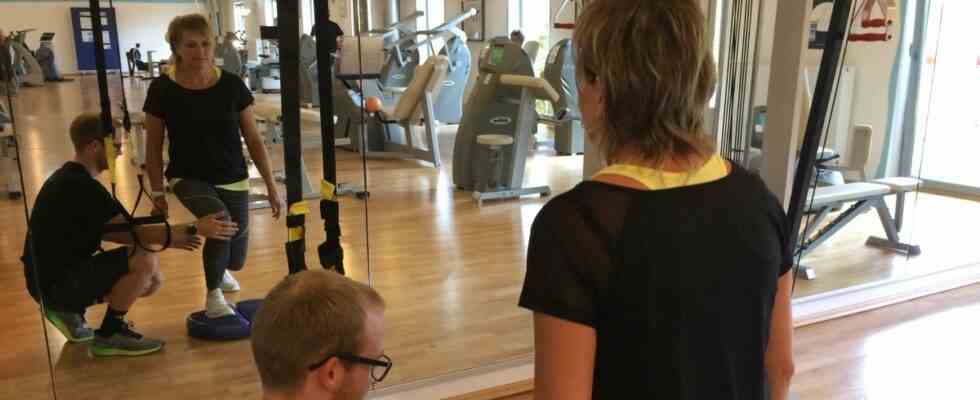“Am.mio pulled me out of my hole. Otherwise I would have let myself down,” says Thomas Frenzel. Two years ago he was diagnosed with prostate cancer. Despite or perhaps because of the hole he slipped into after this news, he pulled himself together to take part in the Amberg Model Integrative Oncology: Am.mio. Today he is convinced: It was a vital decision.
In addition to conventional cancer therapy, the oncological center at the Amberg Clinic has been offering this integrative treatment since 2017 – a pioneering project against cancer in Bavaria, the second leading cause of death in Germany. “It’s about looking at the whole person,” says Harald Hollnberger, head of the Oncology Center in Amberg. For more than a year, cancer patients learn how to deal with their situation in courses. Then they should integrate the movements, the healthy recipes or mindfulness exercises into their everyday lives. “A help for self-help,” says Hollnberger.
The offer includes exercise therapy, stress management, nutrition and psycho-oncological support. “The positive influence has been scientifically proven,” says Hollnberger. “Except for art therapy,” he adds. It is precisely this that has particularly helped Thomas Frenzel. With clay, watercolors or chalk, the patients artistically put their feelings on paper and exchange ideas. Frenzel says he was “allowed to do something for himself” and at the same time, in the courses with five to ten people, an exchange and sense of community that was important to him emerged: “It gave me back my optimism.”
The concept includes healthy cooking and dealing with one’s own body
With diagnoses such as breast cancer, patients are often discharged from the hospital after a very short time, says Hollnberger. With a life turned upside down. Instead of fobbing off sick people with advice such as “Sign up for the gym” or “You should eat healthier”, the clinic accompanies cancer patients with Am.mio from yoga courses to Nordic walking or a specially created cookbook. At nutrition workshops, experts teach about the immune system or intestinal health. Patients learn how to make ghee, a healthier alternative to butter, or how to cook raw pumpkin soup. Thomas Frenzel describes it as “very inspiring”. He would not have been able to motivate himself to exercise and eat healthily on his own, he says.
Last year, Health Minister Klaus Holetschek (CSU) toasted what he called the “lighthouse project” with a green smoothie mixed by a dietician and course participants. “Modern medicine requires a patient-oriented healthcare system in which conventional medicine and natural medicine have equal rights,” he said.
In Bavaria, the Amberg model is unique in its range of offers and medical support. National hospitals and universities take a look at the Oberpfälzer Klinik. The Ambergers work closely with the CCC (Comprehensive Cancer Center) in Erlangen and Freerk Baumann from the University of Cologne. The sports scientist is one of the leading experts in oncological movement therapy. An integrative oncology based on the Amberg model is also being developed at the Straubing Clinic.
“There are some patients who say they would not be alive without Am.mio”
At another meeting with Holetschek this year, the question of financing Am.mio came up. Half a million people in Germany are diagnosed with cancer every year. “The feedback is so good, Am.mio should actually be extended to the whole of Germany,” says Heinz Donhauser. The former CSU member of the state parliament is committed to the Amberg model. “There are some patients who say they would not be alive without Am.mio.” For the financing, he and the clinic had already faced many closed doors.
The one-year offer for one patient costs around 3,000 euros. He currently has to pay either himself or it is financed by donations, only a few health insurance companies cover the courses. Harald Hollnberger regrets that Am.mio is dependent on private purses. “Efficiency shouldn’t just mean saving costs for health insurers. It also means maintaining quality of life.”
Since 2017, 180 people affected have taken part in the Amberg model. They could deal better with the side effects of cancer therapy, would have improved chances of survival and a stronger immune system. “And better self-esteem,” adds Thomas Frenzel. Today he is cancer-free and attributes this at least in part to integrative therapy.

